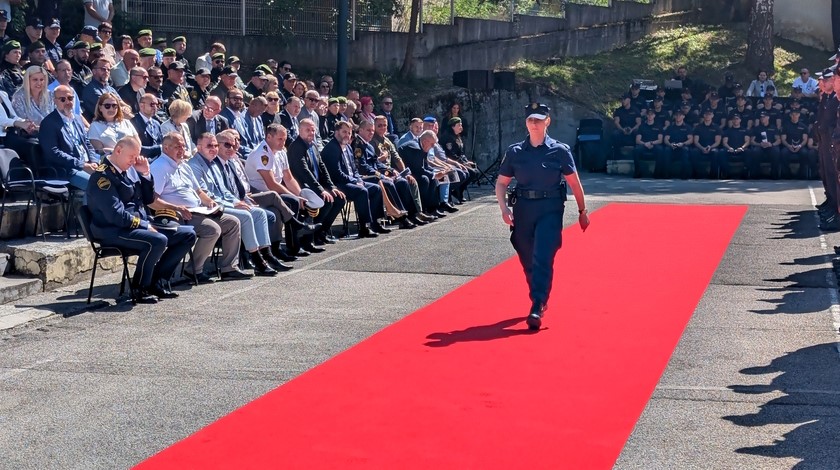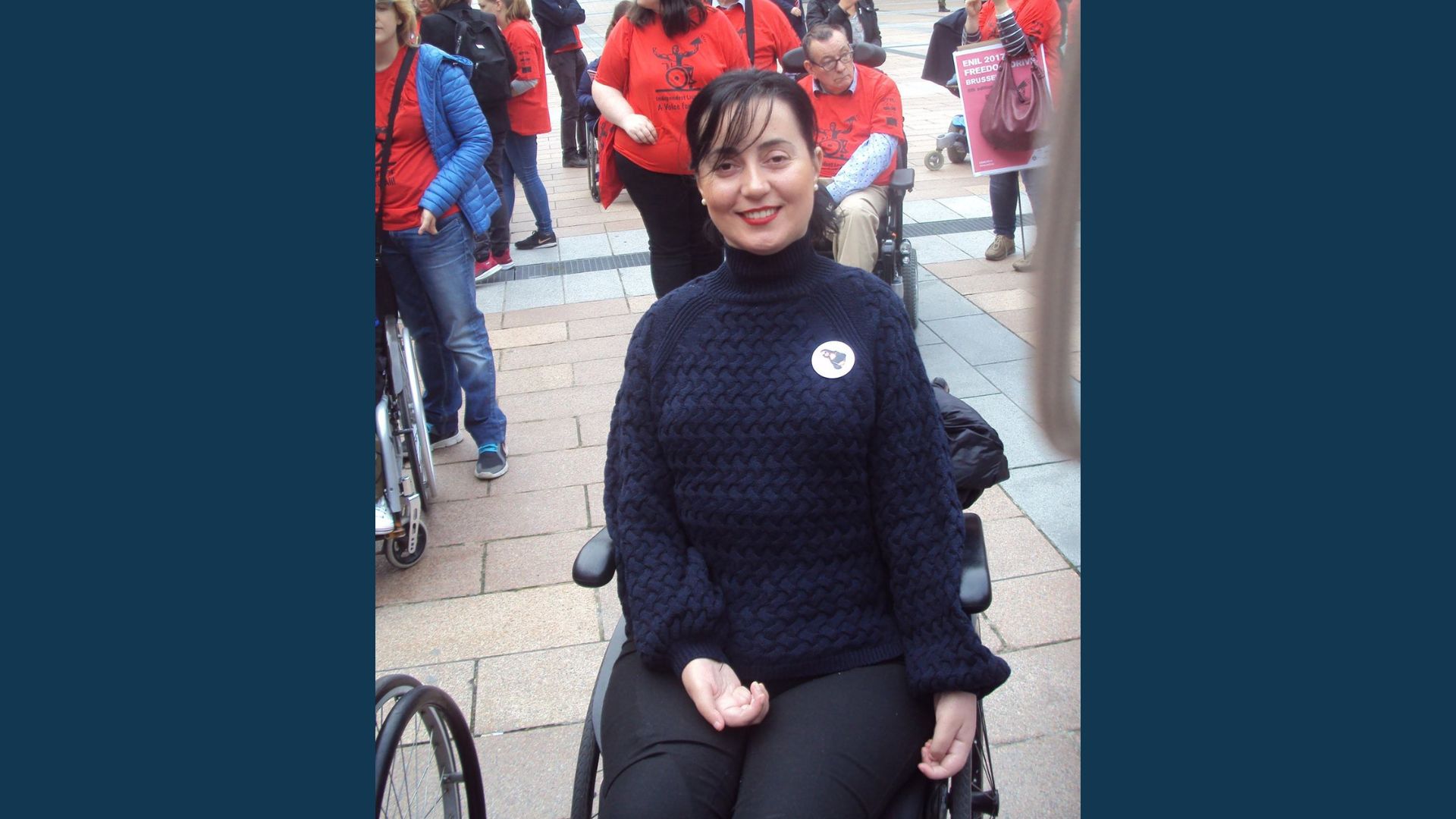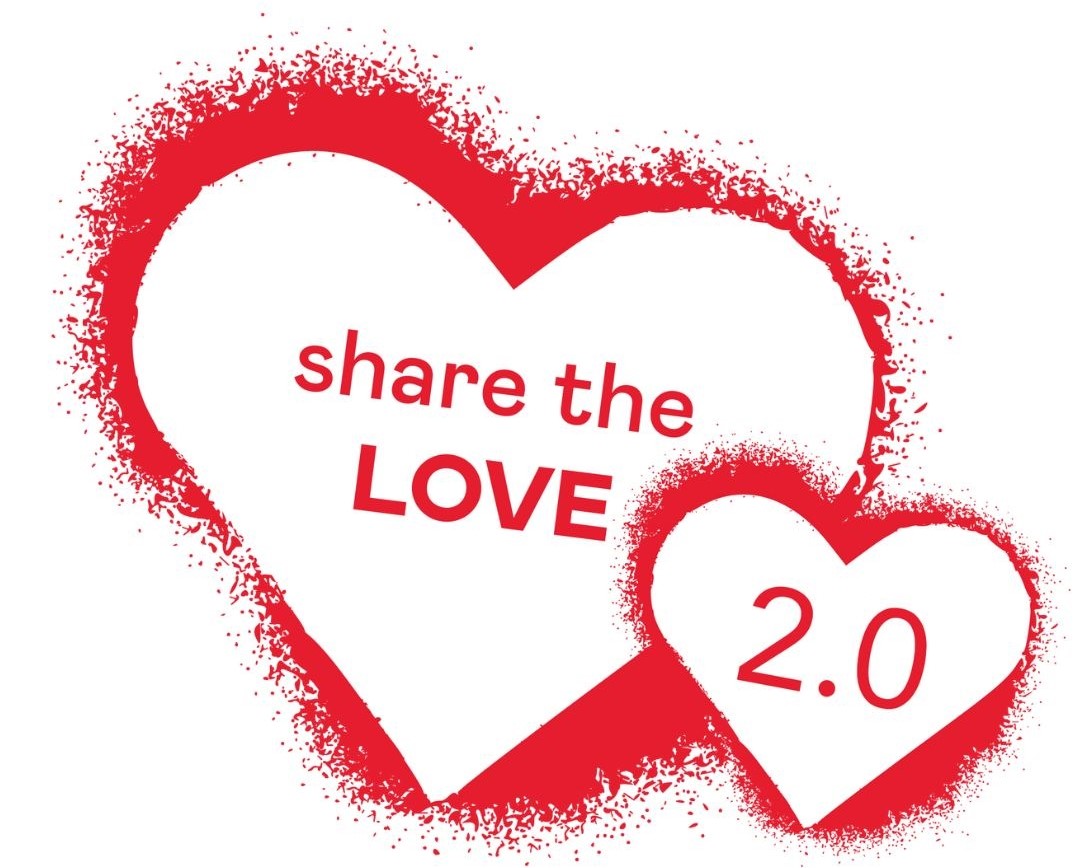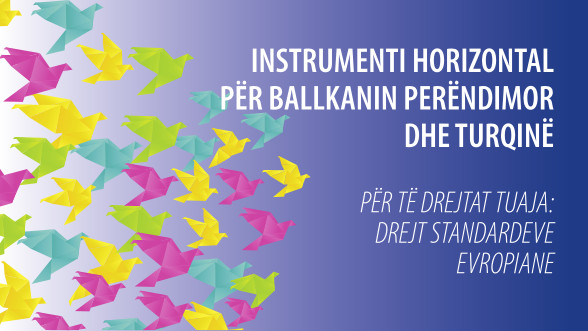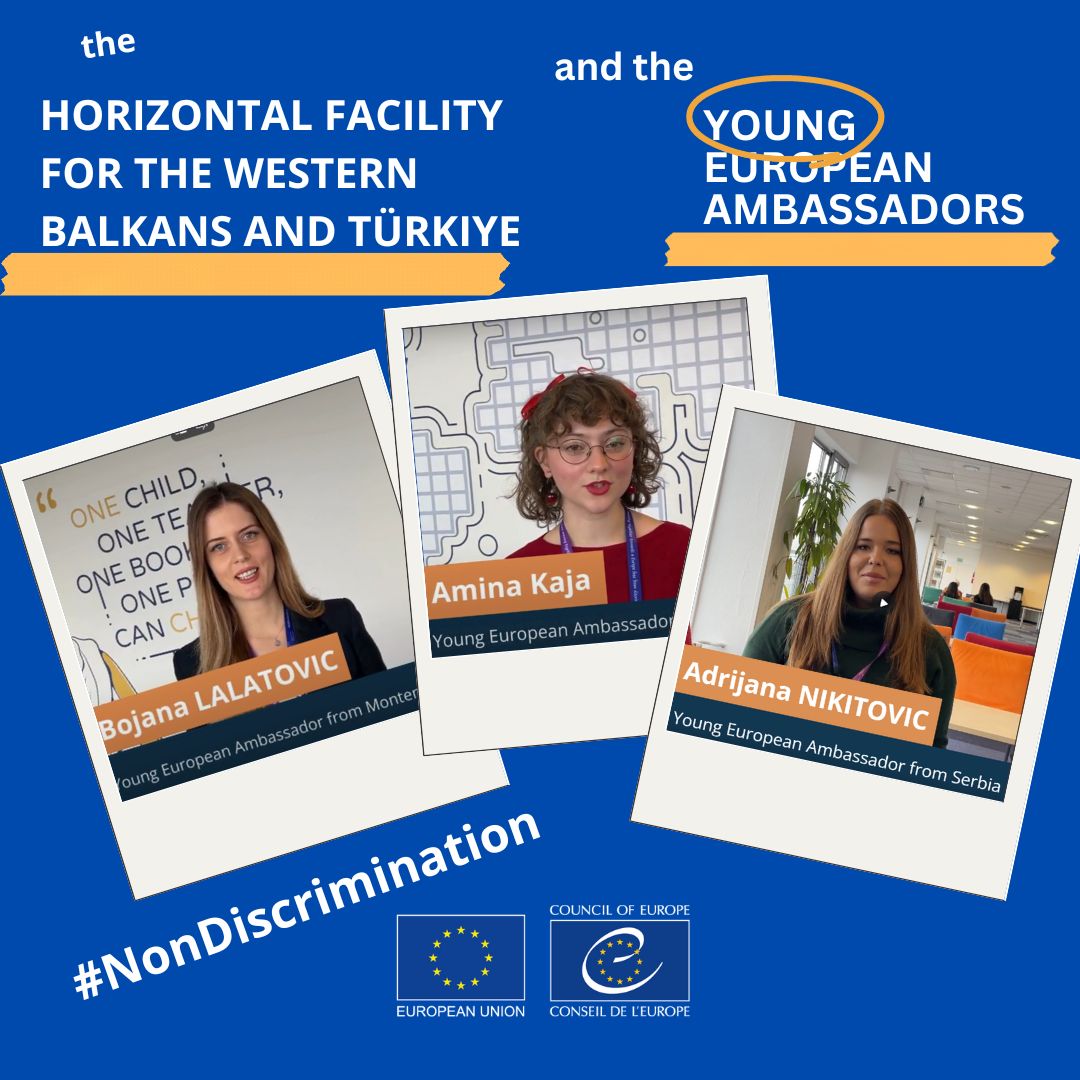In the training yards and classrooms of the Police Academy of the Federal Ministry of Interior in Bosnia and Herzegovina, a quiet revolution has been unfolding. Here, future officers are learning that the badge they will soon wear is more than a symbol of authority - it is a pledge to protect the dignity and rights of every person they encounter, no matter the circumstances.
That transformation began in November 2024, when the Federal Ministry of Interior introduced new human rights courses and placed new human rights modules developed by the Council of Europe at the heart of its police training curriculum. From that moment, cadets not only acquired new knowledge but also began to see their future role in a new light. Training sessions, which once focused purely on tactics and procedures, now explore questions such as: “How do I safeguard freedom of expression?” and “What does humane treatment in detention look like in practice?”
Federal Interior Minister Ramo Isak said that the Police Academy of the Federal Ministry of Interior (FMoI) has recently demonstrated results of which we can rightly be proud. The number of cadets attending the Academy has increased, and he particularly emphasised the qualitative step forward achieved by introducing modern, European-standard training curricula.
“This clearly shows that the Police Academy of the Federal Ministry of Interior not only follows trends in the field of police training but is actively applying them in the Federation of Bosnia and Herzegovina. We owe particular gratitude to our international partners, among whom the Council of Europe stands out in particular. In cooperation with the Ministry's Police Academy, the Council of Europe participated in developing a new training plan and programme, aligned with the needs of police agencies in the Federation of BiH as well as the contemporary security challenges. I am certain that this type of cooperation will bring even better results. We aim to build capacities through the Ministry's Police Academy that will guarantee safety and trust among our citizens,” Isak added.
Today, as the 46th generation of police officer cadets and the 29th generation of junior inspector cadets graduate, this shift is more than theory - it is part of their professional identity. They leave the Academy equipped not only with the skills to ensure public safety but also with the awareness and commitment to uphold the European Convention on Human Rights in every action they take.
One of the Academy’s lecturers who led the new module “Data Processing and Human Rights,” a police officer with the Federal Police Administration, Mustafa Andelija, holding the rank of independent inspector, said he was extremely honoured to have the opportunity to teach this module.
“The cadets demonstrated a high level of interest and commitment, which only shows how important this module is for their future work in the service of citizens. Introducing this module into the training curriculum represents a huge step forward for the Ministry's Police Academy towards contemporary standards in police training. With this, we clearly show that we follow European trends and that we are ready to build not only the professional capacities of our cadets but also their role as guardians of human rights and freedoms.
I owe my gratitude to Minister Isak, the Academy’s management, and to the Council of Europe, whose joint support was crucial in introducing this module. I would particularly like to thank also the cadets - their interest, commitment, and readiness to learn give an additional boost to all of us to continue improving the training quality at the Police Academy,” Andelija said.
Among the most impactful elements of their education are three new modules: the human rights of persons deprived of liberty in police detention; policing the rights to freedom of expression, assembly, and association in BiH; and police interviewing. Developed through a unique partnership between experienced local police trainers and internationally recognised Council of Europe human rights experts, these modules blend Bosnia and Herzegovina’s policing realities with European best practice.
The Police Academy’s Director Ervin Mušinović thanked Minister Isak for endorsing the Academy’s proposal to introduce the new training curriculum, adding: “We owe special thanks to the Council of Europe, which not only helped in developing the module itself but also directly participated in the development of the full training programme. I would particularly like to emphasise the permanent education of our officers, as some of them participate in training organised by the Council of Europe, thereby significantly contributing to the quality of training provided at the Academy.
The new training curriculum is fully aligned with contemporary security challenges and the needs of future police officers. Our aim is for cadets to acquire knowledge and skills that will enable them to perform their duties professionally and responsibly, in accordance with the highest human rights standards.”
For cadets, the lessons go far beyond manuals or lectures. They are learning that policing is not simply about enforcing laws but about ensuring that, even when liberty is restricted, human dignity remains intact. Academy cadet Dženana Lagumdžić emphasised that for her, the module “Data Processing and Human Rights Safeguards” was one of the most valuable experiences during her training.
“Through this programme, we learned for the first time systematically about the core principles of human rights, especially as they pertain to detention facilities. I consider this to be extremely important for future police officers. I have learned a lot that will help me in my police work, to do my job in a professional and responsible way while fully respecting human dignity. I would like to sincerely thank the Police Academy for its openness to new curricula and the Council of Europe for their support and cooperation. This module showed us that contemporary police training is not only based on discipline and law but also on humanity, which motivates me even more in my future work,” said Lagumdžić.
The Council of Europe’s contribution has brought a fresh, international perspective to the Academy, exposing cadets to best policing practices and universal standards that protect human rights both across Europe and worldwide. This exposure has helped them appreciate their role not just as law enforcers but as defenders of fundamental freedoms.
“As the cadets graduate, they step into a hugely important role: protectors of public safety. With the tailor-made practical training they have received, they are better equipped to tackle real-life work situations that often require swift decisions and reflexes,” said Head of the Council of Europe Office in Sarajevo, Bojana Urumova. “By putting human rights at the centre of police work, we hope to foster true partnerships and trust between law enforcement and the communities they serve, to the benefit of everyone,” she added.
The action “Further strengthening the treatment of detained and sentenced persons in line with European standards in Bosnia and Herzegovina“is implemented by the Division for Co-operation in police and deprivation of liberty of the Council of Europe, and is part of the joint European Union and Council of Europe programme “Horizontal Facility for the Western Balkans and Türkiye”.

